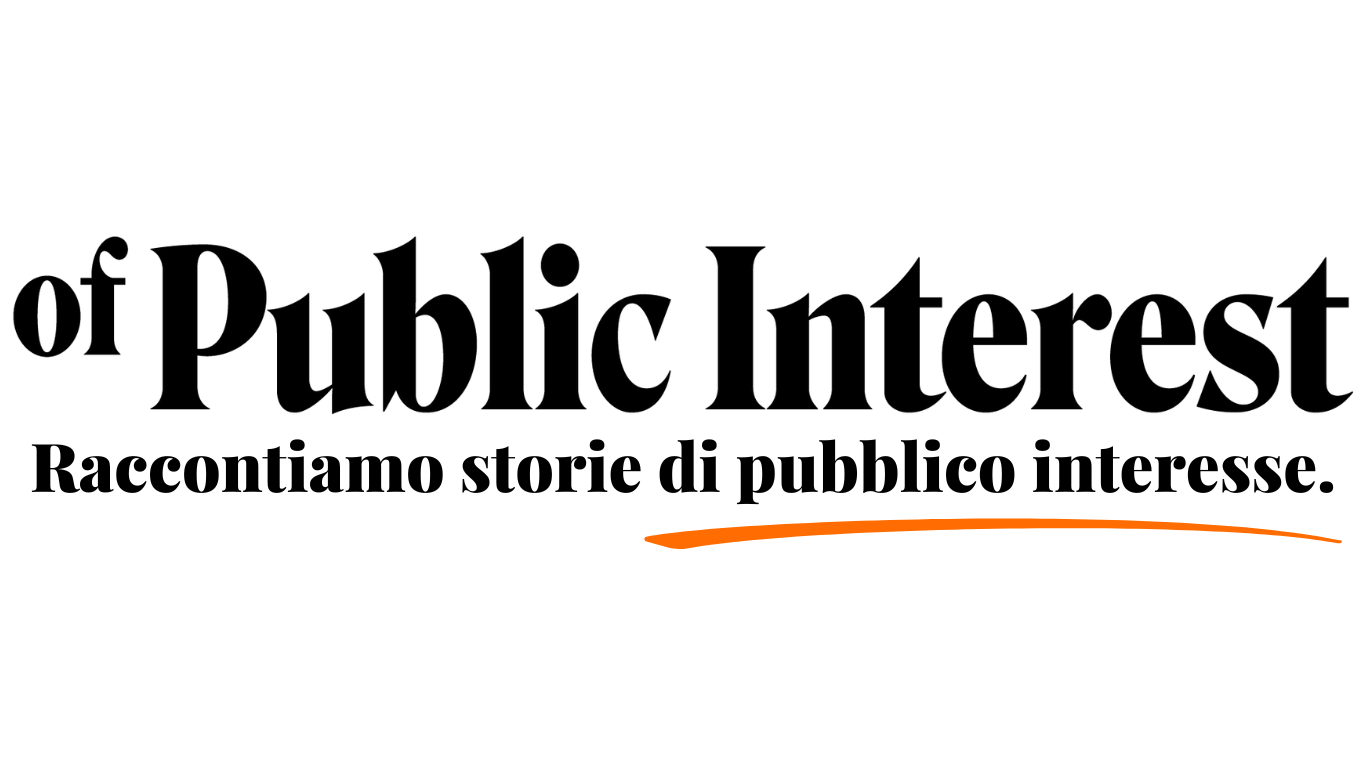On Nov. 1, the German parliament passed yet another resolution on anti-Semitism. According to Amnesty International and other NGOs, the resolution’s vague language allows broad criminalization of criticism of Israel, damaging freedom of expression, freedom of assembly, and cultural and academic freedoms. The consequences would go as far as admitting the possibility of denying state funding to cultural or artistic projects “with potential anti-Semitic content,” as well as endorsing the expulsion of students from university or the denial of asylum or residence permits.
In Italy more than a month ago, Rome’s authorities banned the October 5 pro-Palestinian demonstration on public safety grounds, citing the risk of glorification of October 7 and thus the possibility of violent escalation and anti-Semitic language. As Amnesty comments, the right to protest is enshrined both nationally and internationally. Peaceful assemblies, spontaneous or otherwise, should be protected and facilitated by the state, and restrictions should not relate to the content of the demonstrations. The ban has created divisions in both public opinion and the pro-Palestinian movement: some organizations have chosen to take to the streets, while others have withdrawn after the ban in order to avoid sanctions.
This scenario leads to questions about the concept of democracy and what are the limits of freedom of expression.
The issue of anti-Semitism, of what political views are or are not allowed in the public space, is complex. While it is clear that no room should be left for hate speech, excessive state repression of street demonstrations risks stifling internal dialogue within movements and fomenting polarization between more or less radical elements. The pro-Palestinian movement contains a variety of different political positions, but certainly anti-Semitic elements do not represent a majority, either in Italy or elsewhere.
The question that arose in Italy following the October 5 demonstration on how to articulate the pro-Palestinian discourse without denying the self-determination of the Palestinian people, but also without justifying ultranationalist ideological positions, is crucial. On the other hand, for such a debate to even be possible, it is necessary that the public space is not limited only to those views that are acceptable from the perspective of a government that, whatever the reason, has a clear political and economic interest in the continuation of the genocide in Palestine.
In this sense, the example of Germany and Austria is a useful one. While it is a different political context from Italy, their case shows how the instrumentalization of the accusation of anti-Semitism for repressive purposes is a trend that, according to a 2023 report by the ELSC (European Legal Support Center), is spreading at the European level and is fueling anti-immigration rhetoric and endangering the tenure of fundamental human rights such as freedom of expression and protest.
The political context in Austria and Germany
To understand the political context in the German-speaking countries, it is necessary to look at history after World War II. Just as in Germany, a key part of post-war and post-Holocaust reconstruction in Austria was to engage in support for the state of Israel and its security (economic, political, and military). Austria has declared and supported the state of Israel, justifying this position with historical responsibility related to the Holocaust. However, this narrative often takes on self-exculpatory overtones and is accompanied by a social reality in which hatred of minorities is on the rise, particularly after the victory of the right wing in the last elections.
In 2023, the organization Dokustelle Österreich recorded 1,522 racist attacks against Muslims or people perceived to be Muslims, double the number of cases reported the previous year. Similarly, the Anti-Semitism Report 2023 of the Jewish Community of Vienna showed a 60 percent increase in incidents of anti-Semitism, largely related to right-wing extremism.
Definition of anti-Semitism
A significant point of contention when it comes to Israel and Palestine revolves around the definition of anti-Semitism. In fact, the aforementioned Jewish Community report equates anti-Semitism with anti-Zionism and criticism of Israel. Furthermore, the report divides the grounds for anti-Semitism into categories of “right-wing”, “left-wing” and “Muslim”, implying that being Muslim per se leads to anti-Semitism, regardless of political views.
In 2017, Austria approved the IHRA’s controversial definition of anti-Semitism, and in 2020, the Austrian parliament, like Germany, defined the BDS (Boycott, Divestment, Sanctions) movement as anti-Semitic. The broad use of the accusation of anti-Semitism aimed at voices critical of Israeli policies has a direct relationship to the repression of pro-Palestinian activism, including continued cancellations of events and bans on demonstrations.
In Austria, having a pro-Israel position is seen as normal, while support for Palestine is automatically seen as a radical, glorifying terrorism or even an anti-Semitic position. The real problem with this polarization is not the existence of different views, but rather the censorship and repression suffered by the solidarity movement with Palestine demonstrating against apartheid, occupation and ethnic cleansing.
The suppression of dialogue by institutions, divides the social justice front and reinforces continued Austrian support for Israeli genocidal policies.
The myth of imported anti-Semitism
In German-speaking countries, the narrative of “imported anti-Semitism” shifts the issue of anti-Semitism to immigrant communities, particularly Arabs and Muslims. This narrative is used to silence criticism of Israel while concealing right-wing anti-Semitism.
Austria and Germany use the fight against anti-Semitism as a weapon to distance themselves from their Nazi past. Most Austrians would rather identify with the Jewish victims of the Hamas attack than acknowledge their own role in their country’s historical atrocities, including the Holocaust and imperialism, as well as their role in supporting genocide in the present.
The weapon of anti-Semitism is very effective in silencing pro-Palestinian voices and those protesting the genocide. Ironically, the philosemitism enacted by the state is itself anti-Semitic in that it assumes that all Jews are necessarily Zionist, silencing anti-Zionist dissent and criticism from Jews themselves.
Islamophobia and counterterrorism
In 2020, Austrian police conducted an operation called Operation Luxor, raiding 70 private homes of Muslim families in a highly criticized counterterrorism operation. Not only that, Muslim institutions, charities and intellectuals were targeted, sparking outrage from some human rights groups that condemned the raids as politically motivated and islamophobic. None of the suspects in this operation was arrested or convicted of terrorism.
Just as charges of anti-Semitism are used to silence pro-Palestinian voices, the label of terrorism is used as a tool of moral panic. This label designates all Muslims, particularly young males, as potential terrorists, giving the state justification to police and punish the entire community. The dynamic that results from the intertwining of Islamophobia and accusations of anti-Semitism is a key mechanism in anti-Palestinian repression.
Breaking the Silence
The Archive of Silence is a Berlin-based initiative to document the silent repression of the pro-Palestinian movement in Germany. Through collecting events in which intellectuals, artists, and academics were censored and prevented from doing their critical work, sometimes just because of an Instagram post deemed anti-Semitic, the archive of silence tells about the other side of the coin of the violent and brutal repression of demonstrations in Berlin and other German cities.
The ban on demonstrating that we saw in Italy last month, as well as the beatings, arrests, and physical repression, are the first and perhaps most blatant step in the repression of movements expressing dissent against certain policies. Censorship, cancellations and bans, sowing divisions between “good” and “bad” protesters, and anti-immigration and anti-terrorism rhetoric are other repressive but equally effective tactics of containing dissent and externalizing the problem.
The issue of Israel-Palestine and activism against the genocide becomes, from an internal perspective, a starting point to question the state of so-called liberal democracies. It encourages us to reflect on the boundaries to be drawn within a public space between the protection of freedom of expression and the regulation of violence and, above all, to ask when the latter can turn into repression of dissent.
Illustration by Michele Palumbo
References
Author Collective scăpa دهاش
(2024) Witnessing the Architecture of a Cancellation: The Silencing of Voices on Palestine in Austrian Academia, Middle East Critique, 33:3, 377-395.
Klaudia Wieser (2024) in Sayigh Rosemary. Becoming Pro-Palestinian: Testimonies from the global solidarity movement. I.B. Taurus


